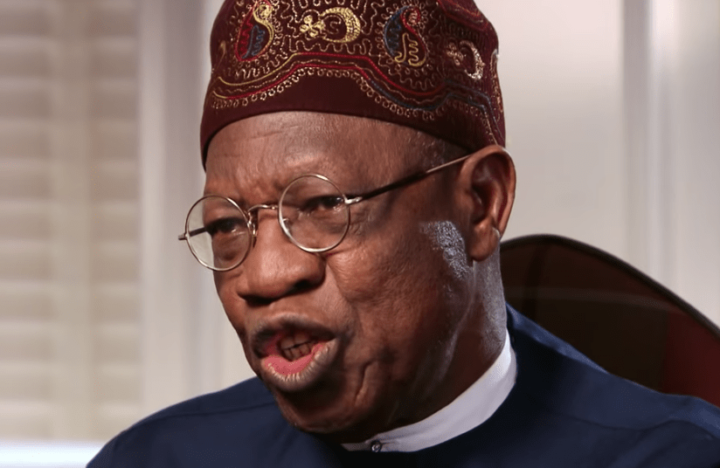Lai Mohammed, minister of information and culture, says former Vice-President Atiku Abubakar is spreading a false and frightening report on the country’s debt profile.
Atiku had raised concerns on the country’s rising debt profile.
The former vice-president said according to the medium term expenditure framework (MTEF) and fiscal strategy paper (FSP), Nigeria’s debt to revenue ratio was 99% in the first quarter of 2020.
The MTEF and FSP are assumptions a budget is premised on.
Advertisement
But in a statement on Wednesday, Mohammed said the debt to revenue ratio as quoted by Atiku is not in the MTEF and FSP documents.
“There is no doubt that former Vice President Atiku Abubakar loves our country and wishes it well, otherwise he would not have sustained his serial quest for the country’s highest position,” the minister said.
“One can only hope that his resort to the use of such words as ‘precipice’, ‘foreclosure’ and ‘economic ruin’ does not reflect anything but best wishes for the country at this time.
Advertisement
“We are also not able to ascertain the source of the first quarter figures of N943.12 billion for debt servicing and N950.56 billion for retained revenue, which he also quoted.”
Mohammed said Atiku’s suggestion that debt servicing does not equate to debt repayment “is not only wrong, but ill-informed”.
“One of the reasons why debt service to revenue is high is because revenue generation in Nigeria has been low, with over-dependence on the oil sector,” he said.
“This is corroborated by the fact that the ratio of Nigeria’s tax revenue to GDP is one of the lowest in the world at about 6%.”
Advertisement
The minister said the borrowings of the federal government is aimed at revamping the country’s infrastructure.
“We have said that in the face of massive infrastructural decay, no responsible government will sit by and do nothing,” he said.
“The loans for the educational sector will contribute to the development of our human capital while the loans for the agricultural sector will help the move to diversify the economy.”
Nigeria’s debt profile stood at N27.4 trillion as of December 2019.
Advertisement
Add a comment







